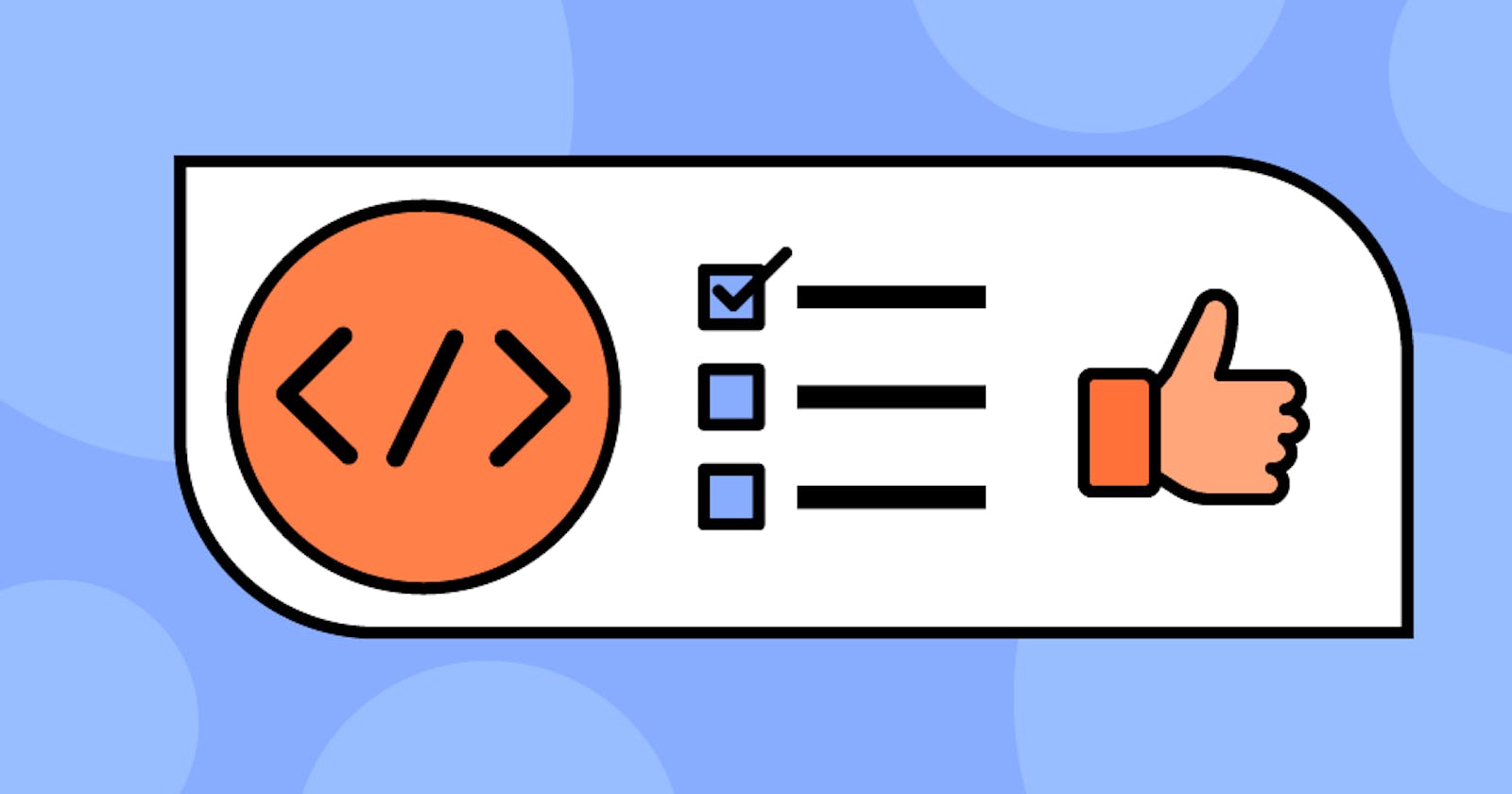7 Essential Coding Best Practices for High-Quality, Maintainable Code: A Developer's Perspective
As a developer, I've learned that following coding best practices not only improve the quality and maintainability of the code but also makes the development process more enjoyable and less stressful. By writing clean code, using version control, and writing automated tests, I can focus on the logic and functionality of the code, rather than worrying about issues that could arise from poor practices.
Additionally, using consistent error handling and conducting code reviews can help to reduce the number of bugs and issues that arise during the development process. This can lead to more confidence in the codebase and a more positive working environment for the development team.
I've also learned that following best practices can be challenging, especially when working on a tight deadline or with a team that may not share the same values. However, by consistently following best practices and educating others on their importance, I've seen a positive impact on the codebase and overall development process.
In this blog, I'll be sharing some of those best practices with you.
- Write clean code
Clean code is essential for improving the readability and maintainability of your code. The best way to achieve this is by using descriptive variable and function names, avoiding unnecessary comments, and following consistent formatting and naming conventions. Writing clean code can be time-consuming, but it pays off in the long run by making your code more understandable and easier to maintain.
- Use version control
Version control systems like Git are essential for managing code changes and collaborating with other developers. By using version control, you can easily track changes, revert to previous versions, and merge changes made by multiple developers. Additionally, you can use branching to test new features without impacting the main codebase.
- Write automated tests
Automated tests are critical for ensuring the correctness and reliability of your code. By writing unit tests, integration tests, and acceptance tests, you can catch bugs early on and prevent regressions when making changes to the codebase. Writing automated tests also helps you to refactor code with confidence, knowing that you won't break existing functionality.
- Keep functions and classes small
Large functions and classes can be challenging to understand and maintain. Instead, it's best to keep them small and focused on a specific task. This makes it easier to understand the purpose of each function or class and to make changes to them when necessary. If a function or class becomes too large, consider breaking it down into smaller, more manageable pieces.
- Avoid global state
The global state can make it difficult to reason about the behaviour of your code, leading to bugs and maintenance issues. It's best to avoid a global state where possible and instead use a local state or pass state as function arguments. If you need to use a global state, consider encapsulating it in a single object or module to minimize its impact.
- Use consistent error handling
Error handling can be challenging to get right, but it's essential for building robust applications. By using consistent error-handling practices throughout your codebase, you can make it easier to catch and fix errors when they occur. This includes using error codes or objects to represent specific errors, logging errors for debugging purposes, and providing meaningful error messages to users.
- Use code reviews
Code reviews are an essential part of the development process. By having other developers review your code, you can catch issues that you may have missed and receive feedback on your coding style and practices. Code reviews also provide an opportunity for knowledge sharing and can help to maintain coding standards across the team.
In conclusion, following coding best practices is essential for building high-quality, maintainable code. By writing clean code, using version control, writing automated tests, keeping functions and classes small, avoiding global state, using consistent error handling, and using code reviews, you can ensure that your codebase is of the highest quality possible. These practices may take time to implement, but they pay off in the long run by making your code easier to understand, maintain, and scale.
